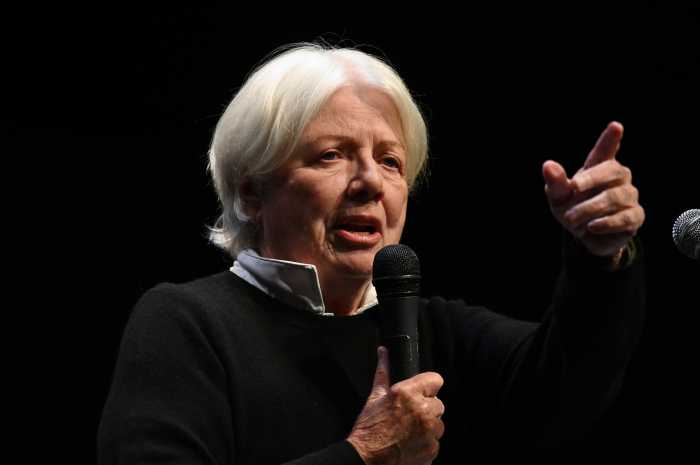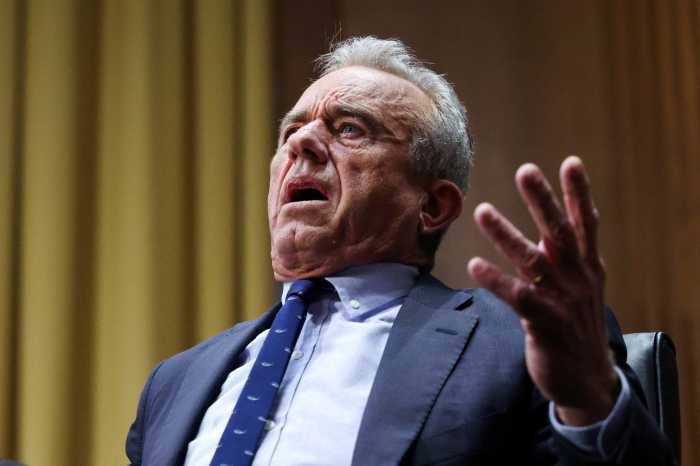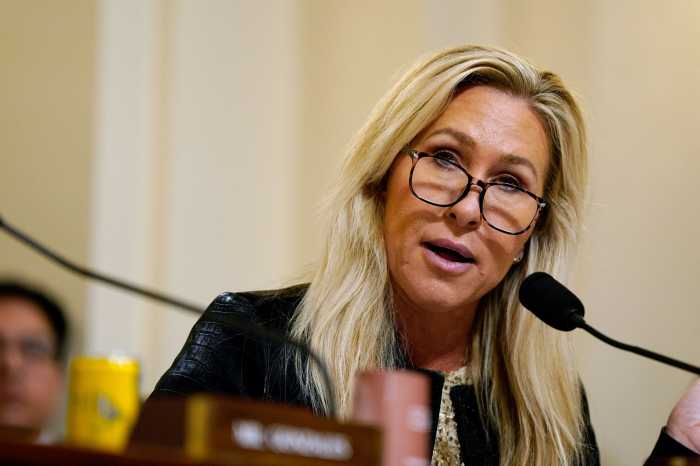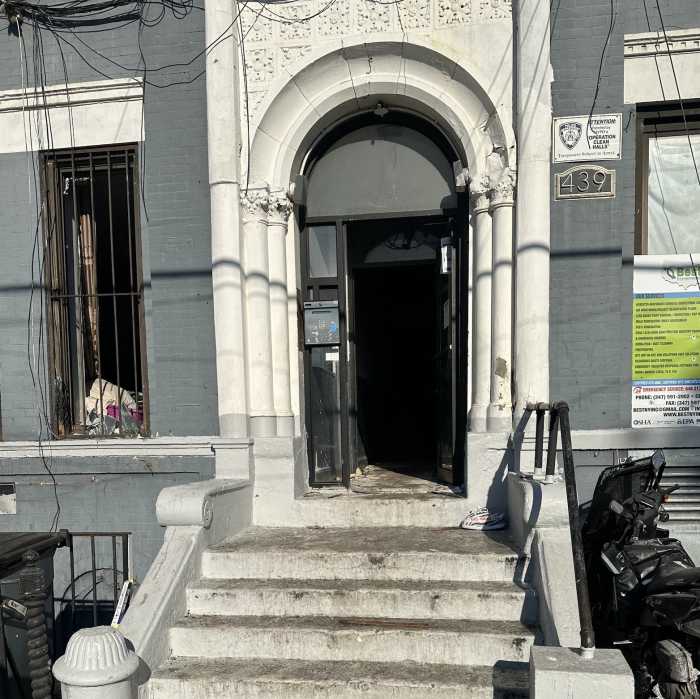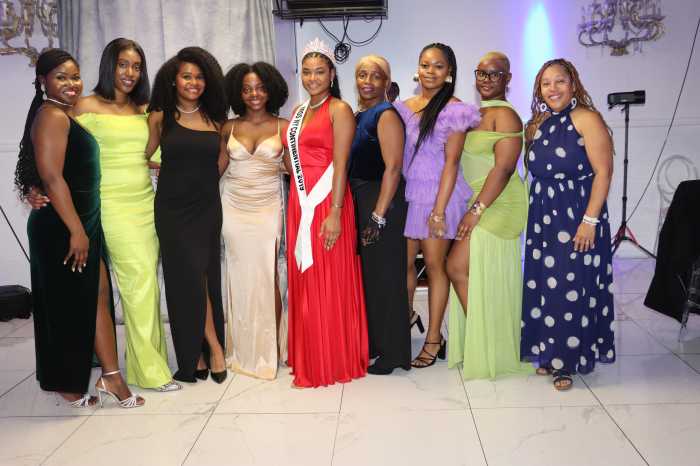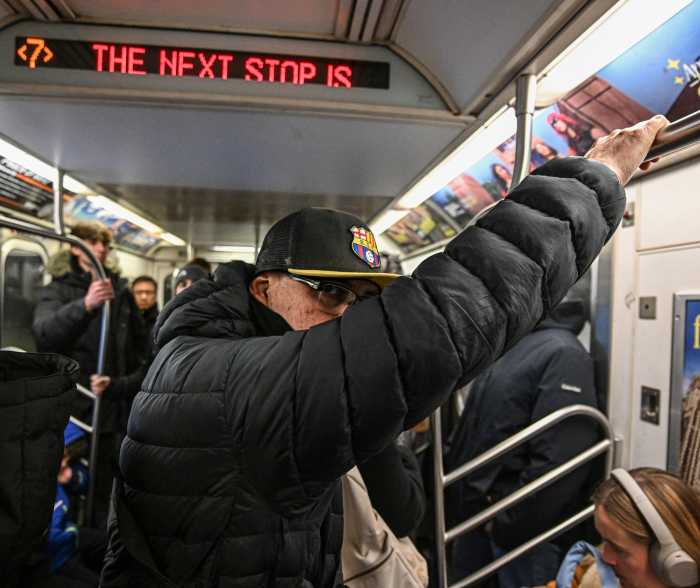Howard Dean, the former governor of Vermont and an unsuccessful candidate for last year’s Democratic presidential nomination, delivered a message to supporters in Manhattan on Sunday that blended his trademark emphasis on mobilizing political energy from the grassroots up with a new attention to the moral dimensions of policy issues aimed at creating an approach for his party to win back power lost to Republicans on November 2.
Dean, who is running to become chairman of the Democratic National Committee, spoke at the Service Employees International Union headquarters near Times Square at a rowdy event that closely resembled a campaign appearance, giving Deaniacs sporting his 2004 buttons the opportunity to engage in collective déjà vu. For the Vermont Democrat, however, the appearance was not about nostalgia. With the withdrawal of other contenders for the chairmanship this week, former Texas Congressman Martin Frost, Dean emerged as the favorite to win the vote among the Democratic National Committee’s 447 members on February 12.
For Dean, success in reinvigorating the Democrats’ appeal to voters is nothing less than a matter of survival for “the greatest country on the face of the earth… in some ways the survival of the world.” His position was clear—Democrats should follow their own political path and not veer to the right in an attempt to gain votes. He stuck to the traditional core issues of Democratic concern, including health care, education and jobs, but addressed each with a moral argument suitable for a new values debate that has emerged since November.
Dean described the Democrats’ 2004 grassroots effort to mobilize voters the best seen in his lifetime, but conceded that the Republicans’ outreach effort prevailed. Coming out from behind the podium, Dean held the microphone and talked about the organizing that he believes is crucial for a Democratic comeback.
Decentralizing the party is key, he said. The political message should flow from the states to Washington and not from the top down. He urged targeted organizing, something that worked for the party in 2004 when young people, notoriously apathetic voters, made it to the polls and overwhemingly voted for Sen. John Kerry. The same effort put on youth last year should be focused on all communities, he said, and in particular those with low rates of voter participation, such as immigrants, people of color and low-wage workers.
“Participating is optimism,” Dean said. He urged people to go to meet-ups, contribute money and to run for office. He also promised to build the party’s infrastructure in places like Alabama, Mississippi a
There is no such thing as a red state,” he said. “There are only purple st
Beyond grassroots strategy, it is clear in the wake of the November election that values have become an obsession for Democrats across the board, who may disagree among themselves as to how best to tackle the issue but seem to agree that the party must grasp hold of the moral authority they believe the Republicans used to whip them into defeat last. Dean described the DNC chairmanship as a strategic position, but also one of moral leadership.
“It’s a job about systems; its about making sure that we really do have a strong grassroots network everywhere,” he said. “But it is also about message and about who we are.”
Language is an important device for managing perceptions of Democrats and their policies, Dean said.
“I don’t think that we need to be the pro-abortion party, but we ought to be the party where women are allowed to make up their own mind about what kind of health care they have,” Dean said. “We are not the party of gay marriage, but we are the party that believes in fairness and that every single American ought to be treated exactly the same as everyone else under the laws and Constitution of America.”
Other Democratic leaders, most notably New York Sen. Hillary Rodham Clinton in a carefully nuanced speech last week before state abortion rights advocates that seemed calibrated to show some openness to abortion opponents, have also been speaking out on the saliency of hot-button cultural issues, but Dean made clear that in the current political environment, he would rather have the national debate avoid these issues for the most part.
“Next time we are not going to be diverted by guns, God, and gays—the favorite issues of the Republican Party,” he said. “The reason they pick those issues is they got nothing to say about jobs, health care and education.”
The preferred message should be reform.
“We need to establish ourself as the party of reform and the party of change,” Dean said. For each issue, he carefully linked reform to values.
“There is no moral value that says it is okay to leave the consequences of our debts to our children,” he said about deficit spending. “If you want morality in the White House, let’s balance the budget.”
Dean also called for election reform and endorsed an Oregon law as the model for a national standard that requires all voting machines to provide for the possibility of a hand recount. Pres. George W. Bush’s clear popular vote plurality, especially in the pivotal battleground prize of Ohio, masked significant ongoing concerns about the integrity of the nation’s voting system.
Speaking about health care, Dean borrowed from his stump speech by listing countries such as Costa Rica and Japan that have a national health care system to emphasize what he perceives as America’s lack of progress in meeting the basic needs of its citizens.
As for education?
“We don’t need slogans like ‘No Child Left Behind,’” Dean said. “We need real education reform which means supporting public schools, not taking money away from schools in troubled areas, but adding services and supporting families.”
Dean took other swipes at current administration to the delight of several hundred supporters, blasting the president’s tax cuts, deficit spending, the fight on terrorism, foreign policy and social security reform.
“It is not enough to have a strong military in order to be secure, we need to regain the moral high ground that we had before this administration took over,” Dean said, though he did not specifically address the ongoing conflict in Iraq.
In Dean’s view, the president’s greatest sin was the way he divided Americans based on income, religion, race, gender and sexuality.
“I was sickened in this election when on the ballot in 11 states, [there was] an amendment that was completely unnecessary—every single one of those states already outlawed gay marriage,” Dean said, in his only other direct reference to gay issues. “The only reason to put gay marriage on the ballot in those states was to scapegoat a minority that was unpopular in order to win an elections.”
Dean urged party members to move forward with courage of conviction and warned them against making the error of adopting Republican positions.
“We need to talk about our faith but I do not think we need to change our faith,” he said.
In an echo of his assertion last year that represented the Democratic wing of the Democratic Party, Dean said that he learned from the way Republicans lost previous elections by trying to be more like Democrats. The crowd chuckled when he sung the praises of Newt Gingrich for his party building efforts during the ’90s, but the lesson was not lost.
“He understood that in order to win elections you have to have clear differences between the parties,” Dean said.
gaycitynews.com


